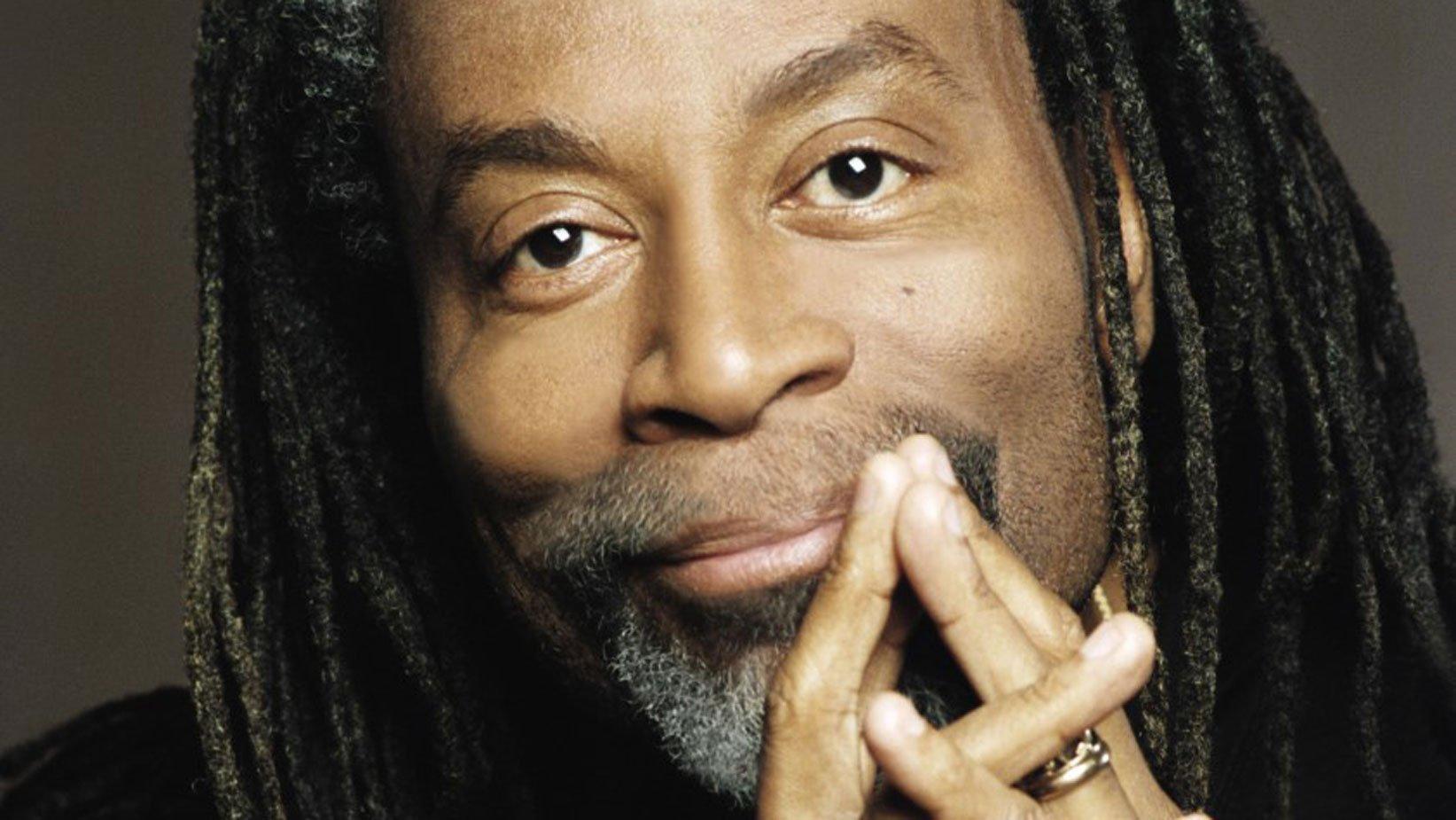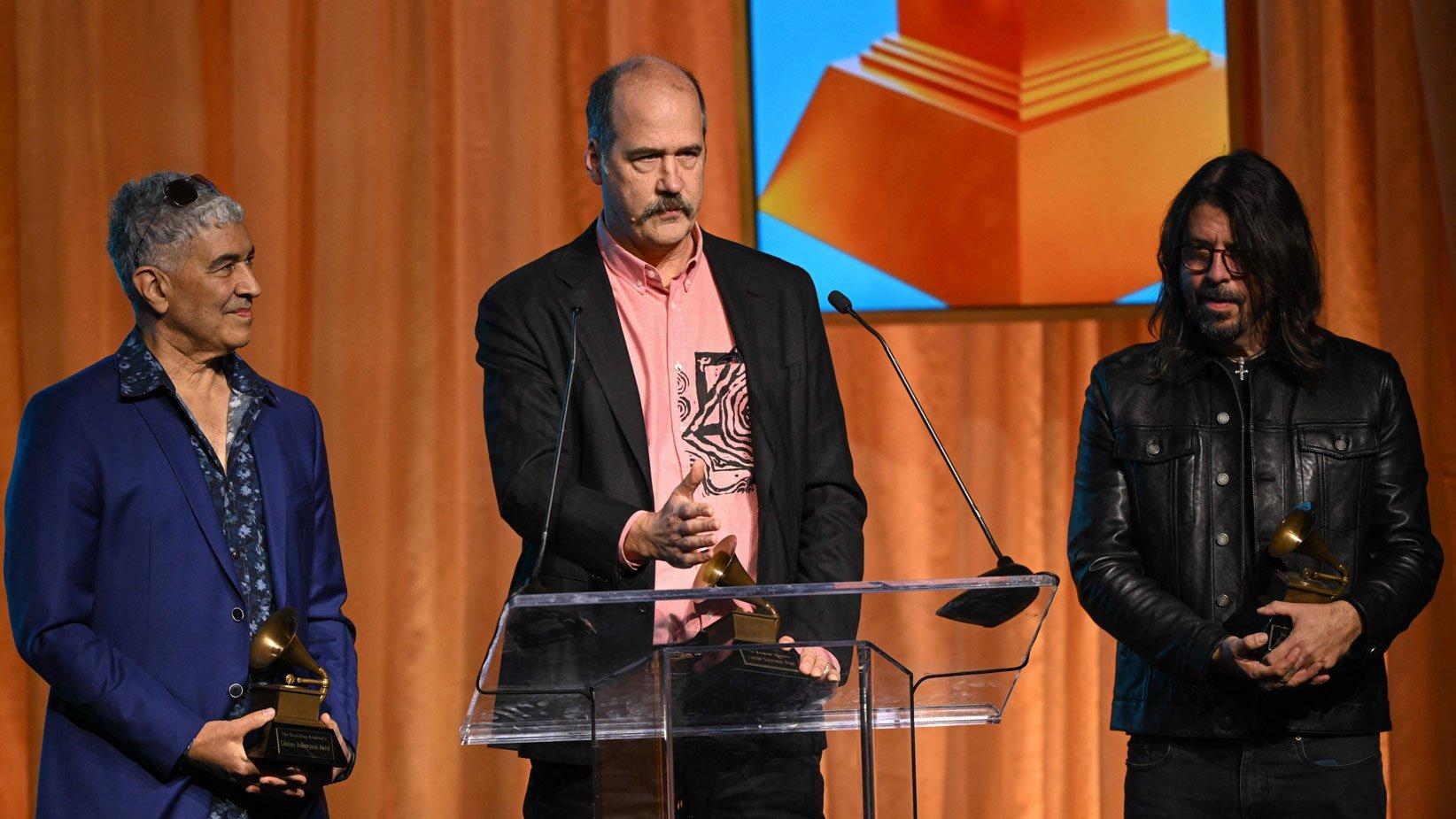Welcome to Forgotten Videos, the 53rd Annual GRAMMY Awards edition, showcasing past GRAMMY winners. For some, these videos are forgotten, for others just filed away, and for others still, a totally brand-new discovery. Whichever category you fall into, each week until the GRAMMY Awards on Feb. 13 we'll feature a video from a GRAMMY-winning artist that's possibly been collecting dust when what it really deserves is a fresh look. Or, just for old times' sake. We just want to take you on a little trip down memory lane. Yep, you'll remember when hair was really that big, when drums were that up front in the mix, when video was young(er) and so were you.
Bobby McFerrin
"Don't Worry Be Happy"
1988
Arguably the most optimistic song he ever wrote — or anyone ever wrote — Bobby McFerrin's carefree "Don't Worry Be Happy" is not only an example of vocal mastery, but a perfect antidote for anyone in need of a spiritual lift or a new philosophical mission statement.
McFerrin got off to a modest start like many musicians, studying piano in college and playing with a series of cover bands. While living in San Francisco, he was discovered by jazz aficionado Bill Cosby, who arranged for McFerrin to play at the 1980 Playboy Jazz Festival. Subsequently, McFerrin scored a record deal, and released his self-titled debut album in 1982 on Elektra Records.
In short order, McFerrin became known for his unique vocal style across jazz, pop and classical settings, an ability to switch his voice effortlessly between falsetto and deep bass notes, and performing both melodies and accompaniment — almost like a virtual self-made choir. (McFerrin also used his voice and other body parts such as his chest to create percussive effects.)
His big mainstream breakthrough came in 1988 when his fifth album, Simple Pleasures, cracked the Top 10 on the strength of the No. 1 hit "Don't Worry Be Happy." While you may be able to hum the song's signature whistling melody, some fun pieces of trivia you may not be aware of: All of the "instruments" in the song come courtesy of Bobby's voice; "Don't Worry Be Happy" became the first a cappella song to top the Billboard Hot 100; the title of the song was inspired by an expression by Indian mystic Meher Baba; former President George H. W. Bush used the song as the theme for his 1988 presidential campaign, without McFerrin's endorsement; and the song was featured on the soundtrack to the 1988 film Cocktail, a romantic drama in which Tom Cruise plays a go-getter bartender who falls in love while mixing drinks in Jamaica.
Not surprisingly, the video resembles the song's lighthearted message, with Bobby hosting a fireside conversation with…himself, plenty of dancing and cameos by actors Bill Irwin and a post-Mork Robin Williams. In between, there's a stretch limo, ledge-jumping and a flying goldfish bowl to round out the worry-less concept.
McFerrin didn't have to worry when it came to GRAMMYs. Already a five-time winner, in 1988 he would pick up three more statues for "Don't Worry Be Happy," including the coveted Record and Song Of The Year awards. Overall, McFerrin has won an impressive 10 GRAMMYs over his career. And lest you be worried about getting a Bobby fix, he'll be co-hosting the GRAMMY Pre-Telecast Ceremony with Esperanza Spalding on Sunday, Feb. 13.
The next time your landlord wants to litigate, don't worry, give Bobby a call. Got a Forgotten Video recommendation? Leave us a comment. And don't forget to tune in to the 53rd GRAMMY Awards on Sunday, Feb. 13 at 8 p.m. ET/PT on CBS. You can check out Bobby during the Pre-Telecast Ceremony beforehand at GRAMMY Live!





